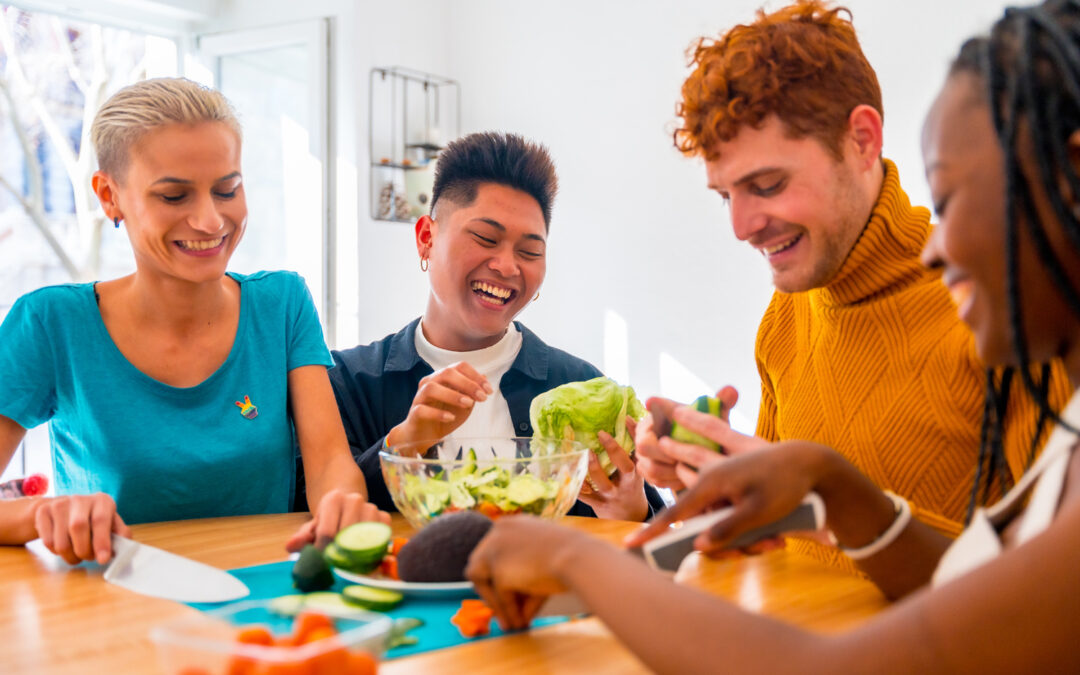*If you or someone you know is experiencing disordered eating or eating disorders, this blog post is not going to be a cure all, I would recommend reaching out to a therapist in your area to walk with you through this.
I’ve been intrigued by the idea of body neutrality since I heard about it. Body neutrality came a few years after the body positivity movement, which has had its fair share of criticism, and I resonate much more with body neutrality for many reasons. As I discuss much in this blog post, body neutrality is not something that a person can reach and never have to reassess. I myself don’t have perfect body neutrality (nor will you), but I do see it as something I can become increasingly better at.
I wanted to (try to) answer some questions about body neutrality that I’ve gotten throughout my time as a clinician.
What is body neutrality?
According to Hillary Ammon, PsyD, a clinical psychologist at the Center for Anxiety & Women’s Emotional Wellness, via Women’s Health, “the concept of body neutrality encourages individuals to appreciate the functions of their body and discourages judgment of one’s physical features.” Personally, I enjoy the description of encouraging appreciation and discouraging judgment, which, to me, is the core of body neutrality. How much could each of us gain from that idea even outside of the context of bodies?
I also see body neutrality as seeing your body as it is rather than good or bad. Your body is neutral, how it looks or is has no weight on your worth and value. And although this blog post is geared towards those of us who experience disordered eating or eating disorders, this also goes for anyone who has been told their body is bad for any reason.
How can we find body neutrality?
I don’t want to frame body neutrality as a goal that only needs to be reached once and will never need to be revisited because it will need to be revisited. If you have experienced disordered eating or eating disorders, you may know that recovery is an active process, it is the same for body neutrality. So maybe, how can we be conscious of our level of body neutrality?
Let’s go back to the definition, to answer some questions. To what degree are you able to appreciate how your body functions? To what degree are you judging your own physical features? Answering those questions may help you identify where you sit with body neutrality. No matter where you sit, try not to judge yourself, that is, after all, what we want to discourage. I’ve found that part of finding body neutrality lies within having self-compassion, you can read more about that here.
How can I practice body neutrality?
I always tell my clients when they are trying to figure out ways they would like to practice body neutrality that we want something that is challenging, but won’t send you into a panic attack. We want manageable discomfort. Some of my clients have found it helpful to challenge food rules or expose themselves to their body more frequently.
Some ideas may be:
- Wearing clothes that you feel comfortable in, that don’t cause you pain, that have a comfortable texture, and that you visually enjoy.
- Exposing yourself to your body more frequently may be something that challenges you, yes, this may mean seeing yourself naked or truly looking at yourself naked in order to get more comfortable with your body.
- Eating dessert before dinner.
- Moving your body in a way that you enjoy rather than for punishment or an aesthetic goal (aesthetic goals are not bad, but it may feel freeing to incorporate other types of movement that you enjoy).
- Going somewhere you may feel uncomfortable (not unsafe) due to the way you view your body.
- What other ways could you see yourself practicing body neutrality?
However you choose to practice body neutrality, I hope it brings your world more color. After practicing body neutrality I have personally experienced my personality flourish, I have gained confidence (my body hasn’t changed), and I have more room in my brain to fully experience the situations I am in.
Ashley Heinrich is a Licensed Professional Counselor at Greenway Therapy . Learn more about her on her BIO page.





